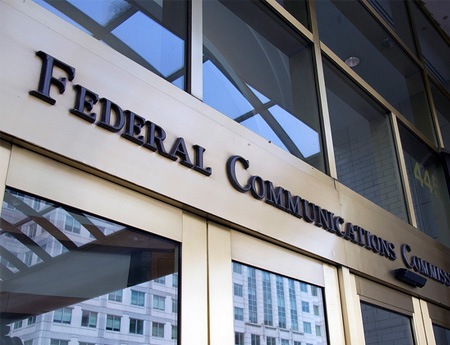Reverse Auction Closes With Broadcasters' New Exit Price at $54.6B

The smarter way to stay on top of broadcasting and cable industry. Sign up below
You are now subscribed
Your newsletter sign-up was successful
The second stage of the FCC's reverse portion of the spectrum incentive auction closed Thursday after 53 rounds, and wireless operators will now have to pay broadcasters at least $54,586,032,836 to get access to the 114 MHz of spectrum that will be on the block in the forward auction.
In the reverse auction, broadcasters are competing to give up spectrum or move to new channels in exchange for a government payment—low bidder wins.
The $54,586,032,836 total is a sizeable drop in the clearing target price from stage one, substantially closing the gap between broadcasters' asks and wireless companies' offers, who will get to start bidding on the 114 MHz of spectrum (actually less since some of that is guard band—buffer spectrum) in their own stage two forward auction starting next week.
The FCC's initial 126 MHz spectrum-clearing target would have required forward auction bidders to cover $88,379,558,704, comprising broadcasters' $86,422,558,704 asking price plus $1.75 billion in moving expenses in the post-auction repack and $207 million in FCC expenses for conducting the auction (that's an additional $1.957 billion).
Broadcasters' asking price was apparently far too rich for forward auction bidders, however. Wireless companies and others (Comcast is eligible to bid, for example) only offered $23,108,037,900 in stage one of the forward auction, prompting the FCC to lower the spectrum-clearing target to 114 MHz and launch the second stage of the reverse auction.
The FCC purposely opened with high prices to encourage broadcaster participation, but the auction was planned for, potentially, multiple stages, so arguably it is working as planned.
"The auction is going exactly as planned," said Preston Padden, who represented stations interested in the auction as executive director of the Expanding Opportunities for Broadcasters Coalition. "It was not designed for speed but rather to find the equilibrium point between spectrum sellers and buyers and that is what it is doing."
The smarter way to stay on top of broadcasting and cable industry. Sign up below
So the forward auction bidders—there were 99 eligible bidders—must now pony up that new total price tag for the incentive auction to close and for the FCC to proceed with actually paying broadcasters that money and starting to move them off their spectrum.
There are actually two dollar benchmarks that must be met to close the auction, the first was achieving a fixed baseline price based on spectrum and price benchmarks in the top 40 markets—$15,896,290,987—which has already been met (given the $23 billion already bid in the first forward auction).
The stage two reverse auction would have closed after 52 rounds and a day earlier unless there were stations, or a station, whose bidding status was suddenly freed up by the bidding in round 52, which must have been the case.
The FCC said it would open stage two of the forward auction four business days after the close of the second stage of the reverse, which is Oct. 19.
Analyst Dan Hays, with PwC Strategy& Principal, sees the new reverse auction total as progress, but a ways from the finish line.
"The significant reduction in the targeted net proceeds of the reverse auction shows just how effective the auction mechanisms can be in bringing together supply and demand. However, at over $54.5B to broadcasters, or roughly $56.5B in total, we believe that the clearing cost is still well beyond striking distance for the budgets of mobile network operators," he says. "A third stage of the auction, and perhaps even a fourth, is now all but a certainty [That would push the auction into early 2017 at least.]. For broadcasters, this is a clear indication of a rapid decline in interest at lower prices, effectively calling the bluff of the wireless industry and demanding that they come to the table ready to pay up.”
The National Association of Broadcasters declined comment on the auction or the latest clearing target price. NAB's focus has been mostly on making sure that the stations not getting big payouts are not disadvantaged in the repack afterwards and get a chance to roll out a new transmission standard (ATSC 3.0) that will help them be competitive.
Contributing editor John Eggerton has been an editor and/or writer on media regulation, legislation and policy for over four decades, including covering the FCC, FTC, Congress, the major media trade associations, and the federal courts. In addition to Multichannel News and Broadcasting + Cable, his work has appeared in Radio World, TV Technology, TV Fax, This Week in Consumer Electronics, Variety and the Encyclopedia Britannica.

